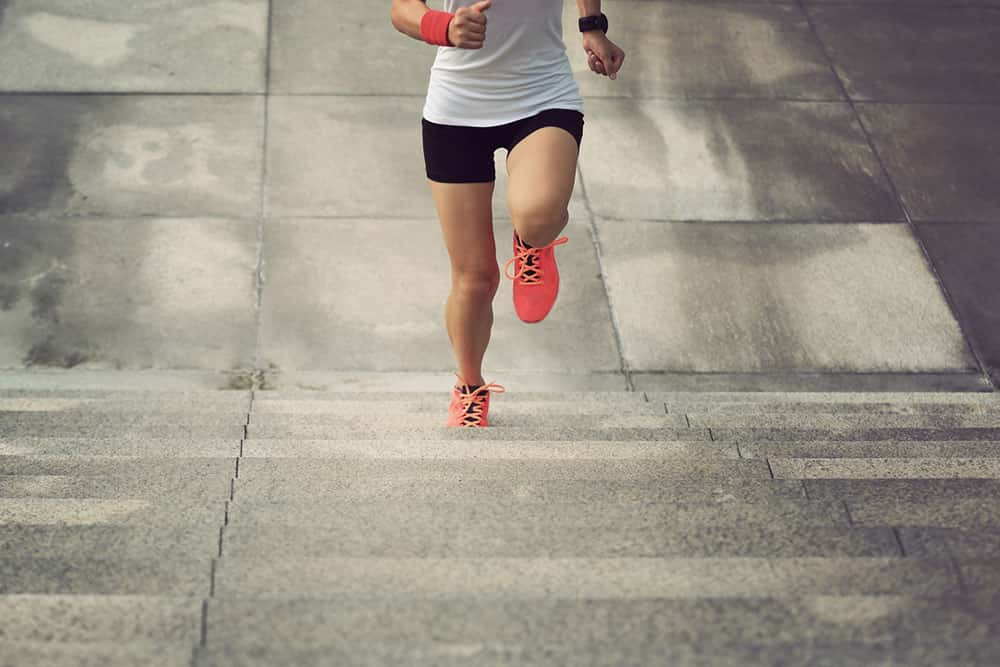Music – Your HIIT Recovery Secret Weapon

Catherine O’Brien
The effects of music on exercise experience is a common theme throughout my articles. I am always interested in the relationship between music and physical activity and how music can alter an exercise session. To date, I have primarily written about the role of music during exercise – see The Science Behind Good Running Music. Interestingly, research has demonstrated that music also may play a role in exercise recovery.
The Study
A study conducted by Jones, Tiller and Karageorghis (2017) examined how different types of music effected ones’ feelings during recovery from a high intensity workout. Based on previous research, they hypothesized that slower tempo (55-65 bpm) music would have a more positive effect than faster tempo (125-135 bpm) music or the non-music control*. In order to measure this, they utilized a high intensity treadmill exercise regimen (HIIT workouts are often associated with less positive affective states, plausibly due to the fatiguing nature of these workouts).
The researchers were interested in two types of recovery – cardiorespiratory and psychological. Cardiorespiratory responses included heart rate during exercise, heart rate during recovery, VO2max, blood lactate, minute ventilation, tidal volume, respiratory duty cycle, respiratory frequency. Psychophysical measures included the Reported Perceived Exertion (RPE) on the Borg Scale. Affective responses were measured with the Feeling Scale (FS) and the Felt Arousal Scale (FAS).
Participants engaged in a high intensity workout on 3 separate days so as to be exposed (in random order) to each of the music conditions. The workout consisted of 5×5 bouts of running on a treadmill separated by 3 minutes of standing recovery. Treadmill speed was “equivalent to 20% of the difference between Gas Exchange Threshold (GET) and VO2max” which is considered to be a high intensity level (p.109). During the 3-minute recovery periods, participants were given headphones that played either slow tempo music, quick tempo music, or no music.
Related Article: The Power Of Music During Exercise
The Findings
Contrary to their hypothesis, they found that fast tempo music had a more positive effect on feelings / level of arousal during recovery than the slow tempo music. Interestingly, there was no main effect of music condition on cardiorespiratory measures. This means that, across all music conditions (fast, slow, none), cardiorespiratory measures were similar. The main effect occurred only for measures related to affect (feelings). It is possible that the upbeat music acted as a motivating factor during recovery and kept the participants “pumped up”.
The takeaway – music can have a powerful impact on your workout (see my other article on the science behind good running music) but can also play a significant role in recovery. Next time you are tackling a HIIT workout, try maintaining fast tempo music throughout your workout and recovery periods to make for a more enjoyable workout.
*Prior to the study, a separate group of participants rated various songs on an affect grid in order to determine songs appropriate for the study. Songs used for the study had positive valence meaning they were rated as pleasurable/positive.
Related Article: Think Positive Thoughts For A Better Workout
You Might Like:
Can HIIT Improve Mental Health?
High intensity interval training (or HIIT for short) has fast become one of the most common forms of exercise on the planet. Used by athletes and regular gym goers alike, it has been applauded for...How to Incorporate HIIT in Every Workout
Over the last few years, high-intensity exercise modalities have become super popular. Think about the rise of CrossFit or even the creation of Orange Theory. Both of these workouts are incredibly popular, and both incredibly...The Effects of Sleep Quality and HIIT
Moji Kaviani Quality of sleep appears to be positively associated with both physical and psychological health (Halson, 2016; Lastella et al., 2012). Therefore, numerous studies examined the relationship between physical activity and sleep suggesting that...What is a High-Intensity Interval Training (HIIT) Workout Anyway?
Evan Stevens High-Intensity Interval Training (HIIT) is a huge ‘hit’ with exercise researchers and the general population alike. It is less time consuming and can imbue the same if not more benefits as traditional exercises...5 High-Intensity Interval Training Mistakes Athletes Make
Alyssa Bialowas High-intensity interval training (HIIT) is one of the hottest fitness trends right now, and because of this, many people have put their own spin on it to try and make it their own....5 Ways HIIT Improves Fitness in Women
Alyssa Bialowas Research poll after research poll, male and female adults express that one of the biggest barriers they face to frequent exercise is lack of time. One common assumption is that exercise and physical...References
Jones, L., Tiller, N.B, and Karageorghis, C, I. (2017) Psychophysiological effects of music on acute recovery from high-intensity interval training. Physiology & Behavior, 170, 106-114.















